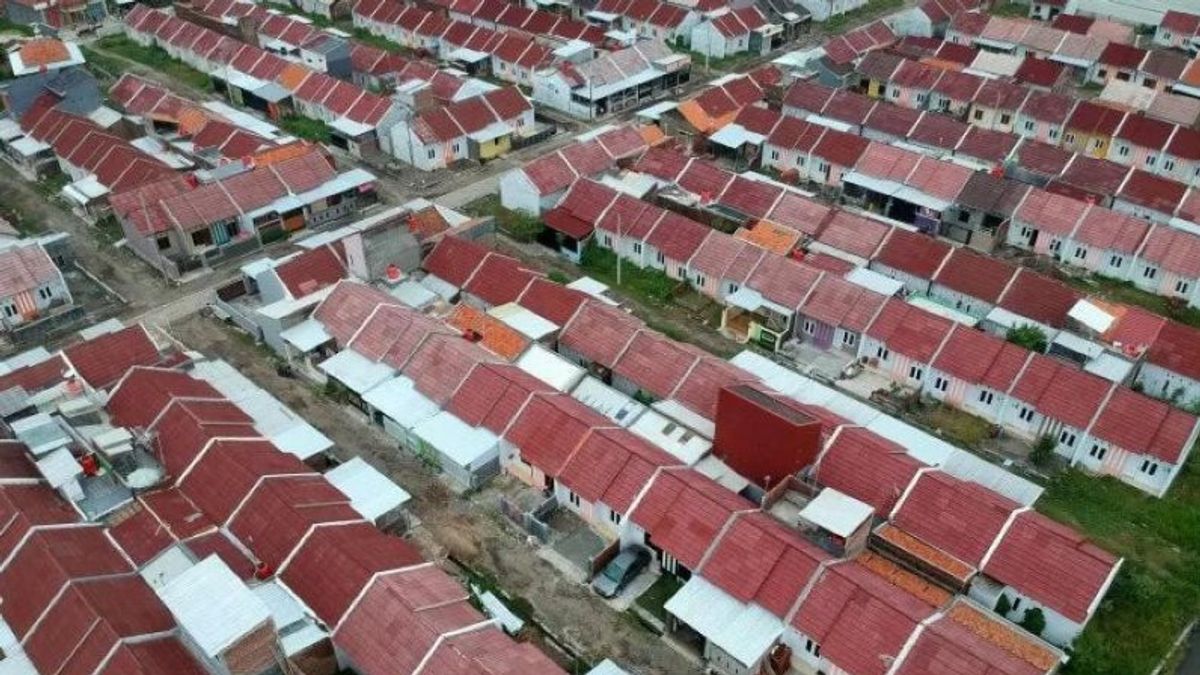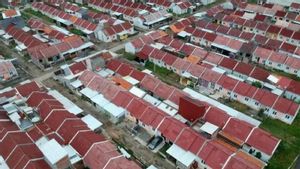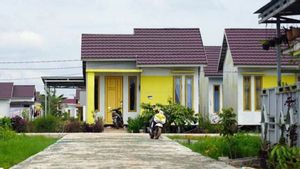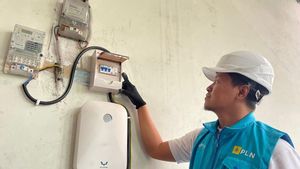JAKARTA - President of the Confederation of Indonesian Trade Unions (KSPI) Said Iqbal assessed that the policy of cutting workers' salaries for Public Housing Savings (Tapera) by 3 percent was not appropriate to be implemented at this time.
"The current condition is not appropriate for the Tapera program to be run by the government by cutting wages for workers and Tapera participants," he said in his statement, Wednesday, May 29.
According to Said Iqbal, there are several reasons why the Tapera program has not been implemented properly at this time. Namely, first, there is no clarity regarding the Tapera program, especially regarding the certainty of whether workers and Tapera participants will automatically get a house after joining the Tapera program. If forced, this could harm workers and Tapera participants.
"Physically healthy and mathematical calculations, Tapera contributions of 3 percent (paid by employers 0.5 percent and paid by workers 2.5 percent) will not be sufficient for workers to buy a house at retirement age or when laid off," he said.
Said Iqbal said that currently, the average wage for Indonesian workers is IDR 3.5 million per month if it is deducted by 3 percent per month, the contribution is around IDR 105,000 per month or IDR 1.26 million per year.
According to him, Tapera is a social savings period, so that within the next 10 years to 20 years, the collected money is IDR 12.6 million to IDR 25.2 million.
"The big question is, is there a house price of Rp. 12.6 million or Rp. 25.2 million in the next 20 years? Even if the business profit from Tapera's social savings is added, the money collected will not be possible for workers to own a house," he said.
According to Said Iqbal, with 3 percent contribution, what aims to make workers own a house is the mere possibility for workers and Tapera participants.
"It is already a burden on workers' wages every month, in retirement or when they are laid off they cannot have a house," he explained.
Said Iqbal explained that the second reason, namely Tapera, is that it is not appropriate to run it at this time, in the last five years, the real wage for workers (employers) has decreased by 30 percent. This resulted in wages not rising for almost 3 consecutive years and this year the wages have been very cheap. If it is cut again by 3 percent for Tapera, of course the burden on workers' lives will be heavier so, it is not appropriate for the Tapera program to be run at this time.
"In the 1945 Constitution, the government's responsibility is to prepare and provide houses for the cheap people, as in the low-cost health insurance program and food availability. But in the Tapera program, the government does not pay dues at all, only as a collector of people's and laborers' contributions. This is unfair because the availability of houses is the responsibility of the state and is the right of the people," he said.
Furthermore, the reason the three Tapera programs are not properly implemented now is that there is no contribution from the government as well as the program for receiving contribution assistance in the Health Insurance program.
Said Iqbal conveyed his last reason, namely because the Tapera program seemed forced only to raise public funds, especially funds from workers, civil servants, the TNI/Polri, and the general public. Do not let new corruption run rampant in Tapera as happened in ASABRI and TASPEN.
SEE ALSO:
"Thus, Tapera is not appropriate to run before there is a very inherent supervision for the absence of corruption in Tapera program funds," he said.
However, Said Iqbal said he supported the housing program for the people. This is because the housing needs for the working class and the people are primary needs as well as food and clothing needs (sandang, food, board).
Even in the 1945 Constitution, the state is ordered to prepare and provide housing as the people's right. Because houses are a matter of the people, the principle is the state's obligation to provide them. This is also included in the 13 Labor Party Platforms, where housing guarantees are social security that we will fight for," said Said Iqbal.
For information, the policy is contained in Government Regulation (PP) Number 21 of 2024 concerning amendments to Government Regulation Number 25 of 2020 concerning the Implementation of Public Housing Savings signed by President Joko Widodo (Jokowi).
This provision requires workers to pay people's housing contributions of 2.5 percent of wages and 0.5 percent of being paid by employers. The Tapera contribution is effective no later than seven years after its determination or in 2027.
The English, Chinese, Japanese, Arabic, and French versions are automatically generated by the AI. So there may still be inaccuracies in translating, please always see Indonesian as our main language. (system supported by DigitalSiber.id)
















